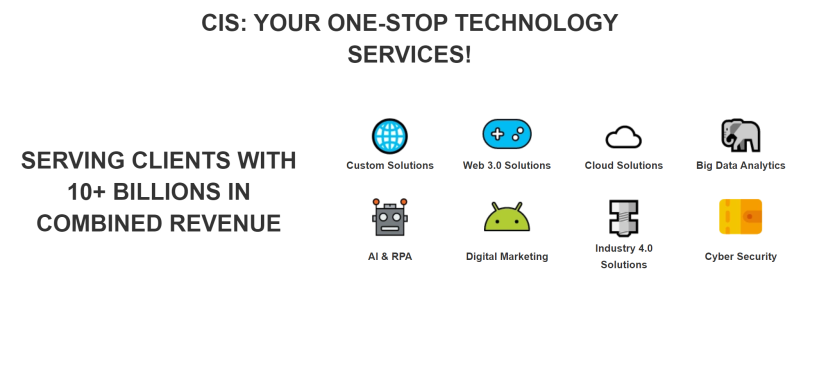Maximizing ROI: The Cost and Benefits of Adopting Odoo For Automation for Your Business
- Odoo for Automation - Detailed Analysis by Enterprise Solutions Experts



Why Mid-size Companies and Enterprises needs Odoo For Automation:
Mid-size companies and enterprises need Odoo for Automation to streamline their operations, increase efficiency, reduce costs, and improve customer service. It provides a comprehensive suite of tools that automate business processes such as accounting, sales, inventory management, CRM, HR & payroll management. This helps organizations optimize workflows and maximize productivity while reducing manual errors. Additionally, it is highly customizable so businesses can tailor it to fit their specific needs.
Benefits of using Odoo For Automation in Mid-size companies and Enterprises:
1. Increased Productivity:
Odoo automation helps streamline processes and reduce manual labor, so companies can get more done in less time. This increases productivity, saving both money and resources.
2. Improved Accuracy:
Automation removes the potential for human error from your business operations, resulting in improved accuracy of data entry and reporting.
3. Lower Costs:
By automating repetitive tasks such as invoicing or payroll processing, businesses save on costs associated with hiring additional staff to do these jobs manually.
4. Better Decision-Making:
Automated systems provide real-time insights into key performance indicators (KPIs), allowing managers to make informed decisions quickly and accurately based on up-to-date information about their business operations.
5. Scalability & Flexibility:
Odoo's cloud-based platform is highly scalable and flexible, making it easy for mid-size companies to grow their enterprise without having to invest heavily in new hardware or software solutions that may become obsolete over timeDetailed Features of Odoo For Automation for Mid-size companies and Enterprises:
1. Automated Business Processes:
Odoo for Automation allows businesses to automate their processes, from sales and marketing activities to finance and operations. This helps them streamline their workflow, reduce costs, and increase efficiency.
2. Customizable Workflows:
Odoo offers customizable workflows that can be tailored to fit the needs of any business size or industry type. It provides an intuitive drag-and-drop interface for creating automated tasks with ease.
3. Advanced Reporting & Analysis:
Odoo provides advanced reporting capabilities that allow businesses to gain insights into their performance over time and identify areas where they can make improvements or adjustments in order to optimize operations further.
4. Cloud Integration Support:
With its cloud integration support, businesses using Odoo automation can easily access data stored on various cloud platforms such as Amazon Web Services (AWS), Microsoft Azure, Google Cloud Platform (GCP), etc., which makes it easier for them to manage all of their information in one place without needing multiple systems or applications running simultaneously on different servers or devices.5 .Integrated Communications System : The integrated communications system provided by Odoo enables companies to communicate effectively across departments within a single platform , allowing teams to collaborate more efficiently . This feature also ensures that everyone is always up -to -date with what's happening within the company .
Who are the Users of Odoo For Automation:
Odoo for Automation is used by businesses of all sizes across many industries, including manufacturing, retail, hospitality, healthcare, finance and logistics. Customers include PepsiCo, Bayer AG, The Home Depot and Whirlpool Corporation.
How to ensure Data Security and Compliance with Odoo For Automation:
1. Implement a strong access control system:
Establishing an effective access control system is essential for ensuring data security and compliance with Odoo for Automation. Access should be restricted to only those who need it, and all user accounts must have complex passwords that are regularly changed. Additionally, two-factor authentication can help protect against malicious actors attempting to gain unauthorized access.
2. Use encryption technology:
Encryption technology helps protect the confidentiality of sensitive data by encoding it so that unauthorized users cannot read or modify the information without proper authorization keys. This is especially important when sending data over public networks such as the internet or wireless networks where interception could occur without knowledge of either party involved in the transmission process.
3. Monitor activity logs:
Logging activities on Odoo for Automation provides visibility into who accessed what resources and when they did so, helping organizations identify any suspicious activity quickly before it causes damage or violates regulatory requirements related to data security and privacy laws like GDPR (General Data Protection Regulation).
4. Perform regular backups:
Regularly backing up your database ensures you always have a copy of your most recent work available if something goes wrong with your original files, allowing you to restore them quickly with minimal disruption to operations while minimizing potential losses due to cyberattacks or human errorHow Odoo For Automation can increase organization Productivity, Agility, and Profitability:
Odoo for Automation can increase organization productivity, agility and profitability by streamlining business processes and automating manual tasks. This automation technology eliminates the need for manual data entry, reduces errors in data entry, improves customer service response times, simplifies reporting processes and provides real-time visibility into operations. Additionally, Odoo's easy to use interface allows users to quickly create custom workflows that automate repetitive tasks such as invoicing or inventory management. By reducing the time spent on mundane activities, organizations can focus their resources on more important strategic initiatives that drive growth and profitability.
How to Measure KPIs and increase Benefits of implementing Odoo For Automation in Mid-size companies and Enterprises:
1. Track the time saved by automating tasks:
Measure the amount of time saved through automation and compare it to the amount of time spent on manual processes before Odoo was implemented. This will help you determine if your company is truly gaining efficiency from using Odoo for automation.
2. Monitor customer satisfaction levels:
Use surveys or other feedback methods to measure customer satisfaction after implementing Odoo for automation in your mid-size company or enterprise. This can give you an indication of how successful the implementation has been, as customers are likely to be more satisfied with a faster, automated process than one that requires manual input.
3. Analyze cost savings:
Calculate the costs associated with manually completing processes versus those incurred when using Odoo for automation, such as labor costs and software licensing fees. This will help you understand how much money you're saving by using this technology solution instead of relying solely on human resources for certain tasks.
4. Evaluate data accuracy:
Compare pre-automation data accuracy rates against post-automation rates to assess whether errors have been reduced since implementing Odoo for Automation in your mid-size company or enterprise; this should also be done over a given period of time so that any changes can be observed accurately and effectively compared against each other over a longer period of time (e..g., 6 months).
5. Assess scalability potential:
Assess how well your system is able to scale up in order to meet increasing demand as business grows; this will enable you to estimate future benefits associated with expanding operations while still being able to maintain efficient performance levels due to increased use of automated processes enabled by Odoo's capabilitiesHow Odoo For Automation can increase Employee Morale in your organization:
Odoo for Automation can increase organization employee morale by reducing manual tasks and allowing employees to focus on more meaningful work. It can also help eliminate tedious paperwork and streamline processes, making the workplace more efficient and productive. Furthermore, Odoo's automation features provide real-time visibility into task progress, enabling managers to better track performance metrics and reward high achievers. Finally, automating mundane tasks allows employees to have more time for creative problem solving or learning new skills which in turn boosts their job satisfaction levels.
How Odoo For Automation is Better than its Competitors:
Odoo for Automation is an all-in-one business software solution that offers a comprehensive suite of automation tools to help businesses streamline their processes and save time. Odoo's automation capabilities are superior to its competitors because they allow users to quickly create and customize automated workflows, integrate with other applications, easily access data from multiple sources, and automate complex tasks without the need for programming knowledge. Additionally, Odoo's user interface is intuitive and easy to use, making it ideal for businesses of any size or complexity.
Cost to Develop & Implemention of Odoo For Automation:
The cost of developing and deploying Odoo for Automation will depend on the specific requirements of your project. Depending on the complexity, size, and scope of the project, costs can range from a few thousand dollars to tens of thousands or more. Additionally, you may need to factor in ongoing maintenance costs such as hosting fees and software updates.
Why outsourcing implementation services for Odoo For Automation is better for Mid-size companies and Enterprises:
Outsourcing implementation services for Odoo for Automation can be beneficial to mid-size companies and enterprises because it reduces the cost of hiring a team of in-house professionals to manage the project. Additionally, outsourcing allows businesses to access experienced professionals with specialized skills who are familiar with the software, which can help them get up and running faster while also ensuring quality results. Finally, outsourcing often provides additional scalability options that may not be available through an in-house team.


